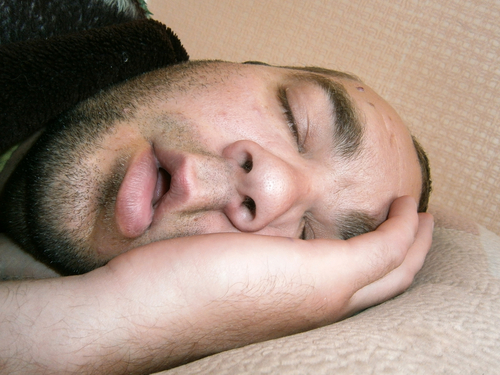 How are insomniacs able to function well with less sleep than others? It may be a beneficial biological trait.
How are insomniacs able to function well with less sleep than others? It may be a beneficial biological trait.
But it isn't just insomniacs who have gained during evolution, according to an anthropology paper, all humans get by on significantly less sleep than our closest animal relatives. We get by on an average of seven hours of sleep a night, whereas other primate species, such as southern pig-tailed macaques and gray mouse lemurs, need as many as 14 to 17 hours. We're just more efficient at it, according to a review which compiled a database of slumber patterns across hundreds of mammals including 21 species of primates -- from baboons and lemurs to orangutans, chimpanzees and people.
The statistical analysis found that we spend a smaller proportion of time in light stages of sleep, and more of our sleep time in deeper stages of sleep. The dream state known as rapid eye movement (REM) sleep makes up nearly 25 percent of our overall sleep but in primates such as mouse lemurs, mongoose lemurs and African green monkeys, REM sleep barely climbs above five percent.
A separate study of the sleep habits of people living in three hunter-gatherer societies without electricity in Tanzania, Namibia and Bolivia found they get slightly less shut-eye, so it isn't lifestyle differences like indoor lighting and computer screens.
Biologists cringe when anthropologists make claims about evolution, but nonetheless the scholars believe the shift towards shorter, more efficient sleep was due to the transition from sleeping in “beds” in the trees, as our early human ancestors probably did, to sleeping on the ground as we do today. Once on the ground, says anthropologist and study co-author David Samson of Duke, early humans likely started sleeping near fire and in larger groups in order to keep warm and ward off predators such as leopards and hyenas, habits which could have enabled our ancestors to get the most out of their sleep in the shortest time possible.
Shorter sleep also freed up time that could be devoted to other things, like learning new skills and forging social bonds, while deeper sleep helped to cement those skills, sharpen memory and boost brainpower, Samson said.
Citation: "Sleep intensity and the evolution of human cognition," Samson, D. and C. Nunn, Evolutionary Anthropology, December 2015. DOI: 10.1002/evan.21464